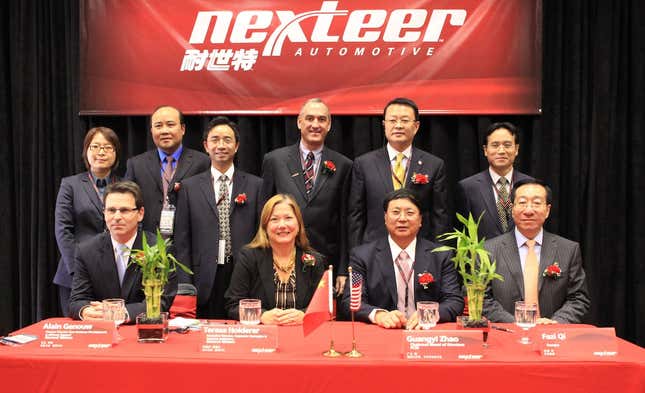
By 2020 Chinese companies could be employing as many as 400,000 US residents, a new report finds. That is, if the pace and volume of Chinese foreign investment in the United States, part of a trend of Chinese investment around the world, continues as it has.
Currently, says the report by the Rhodium Group, a research firm based in New York, Chinese-owned subsidiaries employ just 27,000 people in America, less than 0.5% of the 6 million jobs provided by foreign firms (out of a working population of 98 million). But the group expects China’s cumulative global foreign direct investment to reach $1 trillion by 2020, of which $100 to $200 billion could go into mergers, acquisitions and greenfield investments in the US. In most of the 600 Chinese investments in America that the report studied, Chinese employers kept or added to existing staff.
But any optimism should be contained. In the eyes of some Chinese companies, the recent trend of US politicians and officials to politicize Chinese deals is a reason to shy away. Examples include Chinese telecom equipment maker Huawei, whose path into the country has been repeatedly blocked. On Sept. 12 a Chinese wind farm developer, Ralls Corporation, sued the American government’s Committee on Foreign Investment in the United States (CFIUS), an agency that conducts national-security reviews of potential foreign investments. CFIUS has only stopped a few deals, but often its long process of investigation leads investors to quietly back out.
Shang Dai, an attorney and the founder of Dai & Associates, which advises Chinese companies on acquisitions in the country, says he has seen an increase in these national-security reviews. ”The US is becoming more and more sensitive. I won’t use the word unreasonable but they are becoming more sensitive now,” he said.
In part because of America’s suspicious attitude, Chinese foreign investment to other regions like Europe has soared and is expected to increase. But with the US unemployment rate at 8.2%, US president Barack Obama and his rival Mitt Romney might want to stop arguing over who will be tougher on China over the next four years.